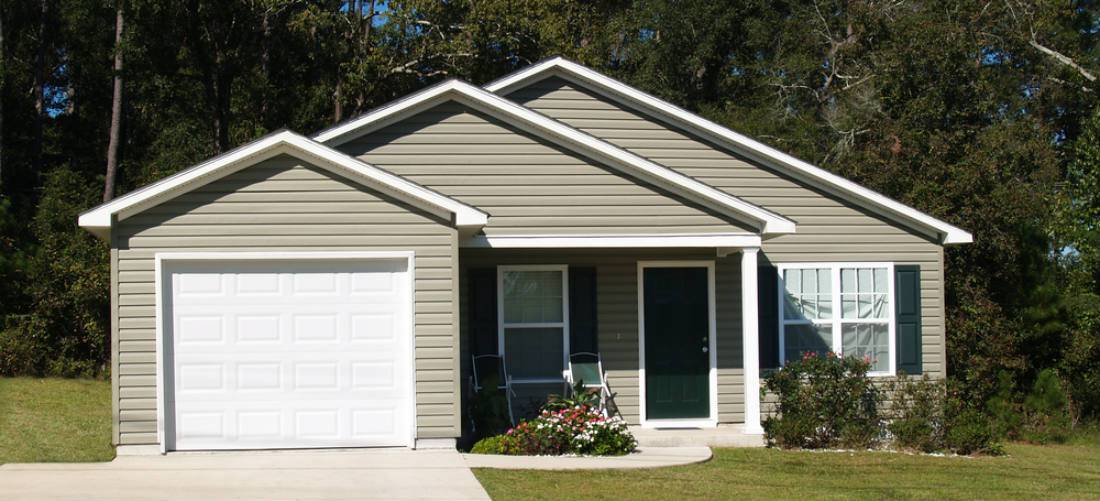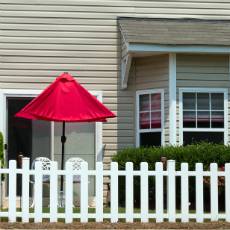A guide to the prices, pros and cons to determine if vinyl siding is right for your home
A large variety of materials are available to homeowners for covering their homes, from paint to cement-fiber siding. The choice of materials is often based on appearance and cost, and according to U.S. Census Bureau statistics, vinyl siding is the most common choice. Vinyl siding prices may be slightly higher than other coverage materials, so there are some pros and cons to consider before installation.

Vinyl Siding Vinyl siding was first marketed in the 1960's and quickly took over as the covering of choice, becoming the most popular exterior housing material in 1995. Its popularity is due primarily to its ease of installation and its hundreds of different colors. Installation is usually the work of a siding contractor with extensive experience of installing the siding panels. Its placement is easy enough however that many handy homeowners take the DIY route in installing the panels themselves, saving significantly on labor costs.
One of the most significant selling features of vinyl siding is the wide color selection; nearly 350 available colors according to the Vinyl Siding Institute, all with long-lasting durability. Unlike paint, vinyl siding does not chip or flake. The color is also slow to fade away, which provides your home with a consistent look that lasts years longer than any paint job. Little maintenance is required other than cleaning or the occasional replacement of a panel due to damage.
 When looking to install vinyl siding be sure you understand the disadvantages of this product. The biggest disadvantage is that vinyl siding isn't waterproof, it's only considered water resistant. Due to the installation process, driven rain or snowfall can result in moisture making its way between the siding panels and your home, which in extreme cases can lead to mold issues. To protect against moisture damage it's recommended that homeowners also install some type of moisture barrier. Vinyl siding can also be damaged in extreme weather, with panels sometimes bending or breaking due to high winds. Extreme cold can cause the material to become brittle, increasing the chances of damage as well. Extreme heat can also cause some damage, with the vinyl possibly becoming distorted.
When looking to install vinyl siding be sure you understand the disadvantages of this product. The biggest disadvantage is that vinyl siding isn't waterproof, it's only considered water resistant. Due to the installation process, driven rain or snowfall can result in moisture making its way between the siding panels and your home, which in extreme cases can lead to mold issues. To protect against moisture damage it's recommended that homeowners also install some type of moisture barrier. Vinyl siding can also be damaged in extreme weather, with panels sometimes bending or breaking due to high winds. Extreme cold can cause the material to become brittle, increasing the chances of damage as well. Extreme heat can also cause some damage, with the vinyl possibly becoming distorted.
Vinyl siding costs can vary according to brand and labor costs in your particular region. A siding contractor can provide you with a siding estimate however, which should take into account local conditions. Using the listings at QualitySmith will enable you to find vinyl siding and contractors. You should contact several contractors to get multiple estimates, thus ensuring you pay the best possible price for the installation.
Before you make a final decision on whether to install vinyl siding you should consider the vinyl siding pros and cons, as well as the vinyl siding prices. Vinyl siding is quite durable and long-lasting, but subject to damage and moisture penetration. By adding vinyl siding to your home you not only increase its beauty, but its resale value as well.













Write a Comment